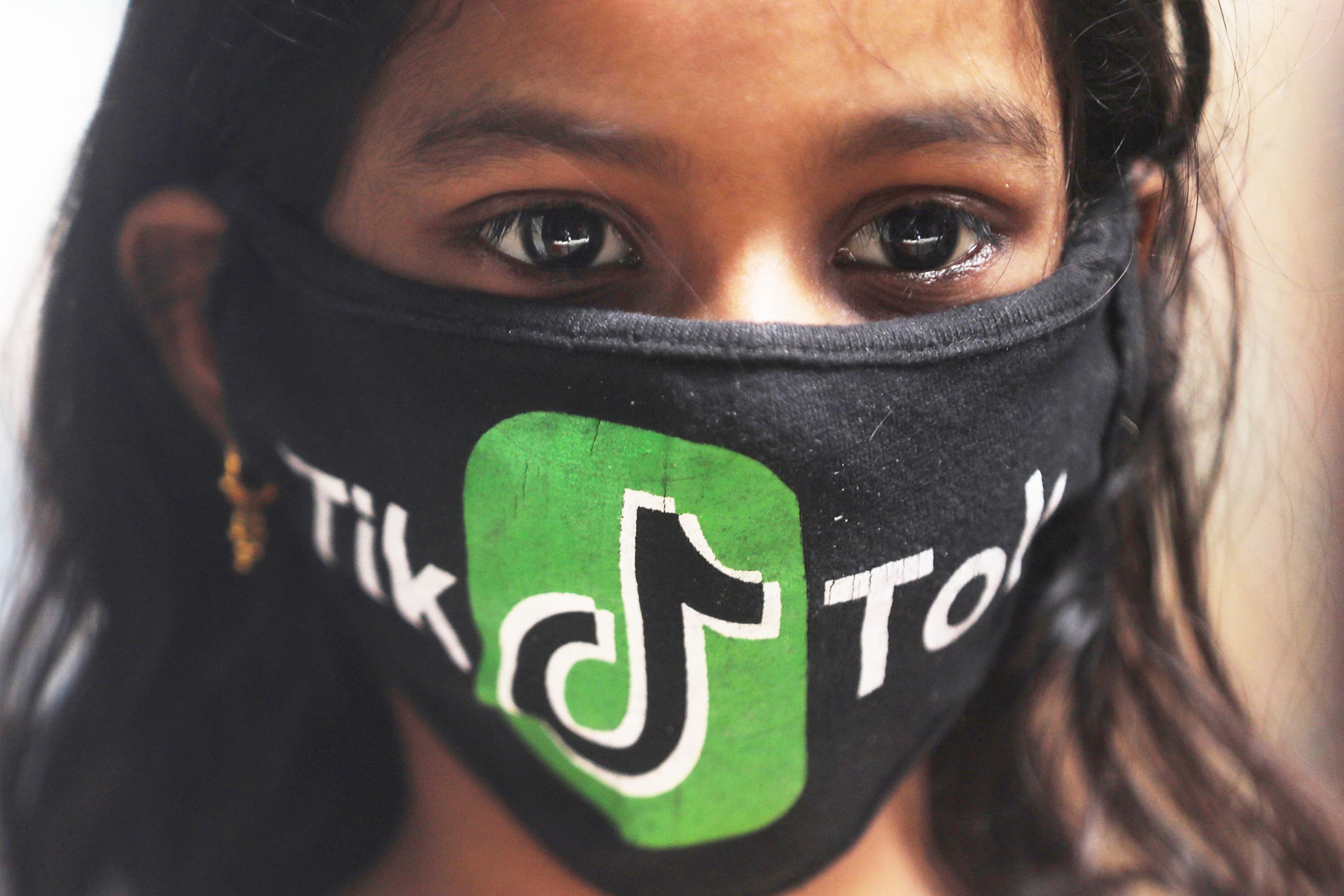
SINGAPORE — India's ban of the popular short-video sharing app TikTok has left a vacuum that local start-ups are moving in to fill.
One of those start-ups is ShareChat, a Twitter-backed Indian social media platform that caters to users in 15 regional languages.
Citing national security concerns, New Delhi announced the ban on TikTok, which is owned by Beijing-based ByteDance, in late June. Just days later, ShareChat launched its own short-video platform, Moj.
"We've been very, very opportunistic because we figured that this is a large vacuum, it's a large opportunity of short-video market, and therefore, we launched on that product," Ankush Sachdeva, co-founder and CEO of ShareChat, said on CNBC's "Street Signs Asia" on Monday.
"I still believe there is a large appetite for short video content and if we can provide a really good experience, that essentially translates to a really good AI (artificial intelligence)-backed feed, there is a large market to be captured," he added.
TikTok had more than 200 million users in India. After it was banned, Indian start-ups in the short-video sharing space reported a surge in users. Moj now has more than 80 million monthly active users who spend on average 34 minutes on the platform, the company said.
ShareChat said last week it raised $40 million in pre-Series E funds from a variety of investors.
They include Pawan Munjal, CEO and chairman of Hero Motorcorp, an Indian manufacturer of scooters and motorcycles, who invested in a personal capacity. Other investors included Twitter, venture capital firms SAIF Partners and Lightspeed India, as well as investment firm India Quotient.
ShareChat's total funding to-date is at $264 million.
Sachdeva said the new funds would be used to improve the technology used by Moj and ShareChat, which includes building up the company's artificial intelligence team, some of whom are based in Silicon Valley. A portion of the new funds would also be used to grow the network of creators on Moj and establish partnerships with music labels. The TikTok ban left many Indian creators without a platform and disrupted many of their livelihoods.
He explained that advertising would be one of the main sources of generating revenue. The start-up would also explore other potential areas such as social commerce and virtual gifting, which are popular among social apps in the U.S. and China.
Like many Indian tech start-ups, ShareChat also has Chinese investors who backed previous rounds of fundraising. They include Shunwei Capital, Xiaomi and Morningside Venture Capital.
India this year also restricted Chinese foreign direct investments flowing into the country.
Sachdeva said the start-up remains connected with its Chinese investors and that it will take a measured approach in the future. "I think we would definitely want to have our early backers also move forward along with us but we will be cautious and we will take a measured approach," he said.
"looking" - Google News
September 28, 2020 at 01:57PM
https://ift.tt/3kR7djM
Indian start-up ShareChat is one of many looking to fill the vacuum left by TikTok ban - CNBC
"looking" - Google News
https://ift.tt/2tdCiJt
Shoes Man Tutorial
Pos News Update
Meme Update
Korean Entertainment News
Japan News Update
Bagikan Berita Ini














0 Response to "Indian start-up ShareChat is one of many looking to fill the vacuum left by TikTok ban - CNBC"
Post a Comment